Jersey City Rideshare Accident Lawyers
We are a team of highly skilled personal injury attorneys. If you have a bodily injury legal issue in or around Jersey City, New Jersey, we can help. Call us today for a free consultation.
Jersey City Rideshare Accident Lawyers
Getting into a car accident is often unimaginably stressful — particularly if you’ve suffered a serious injury. However, in most cases, you can at least identify the person (or people) liable for your injury.
If you’re injured in a car accident while you’re a passenger in an Uber, Lyft, or other rideshare vehicle, things become a lot less clear. Jersey City rideshare accident lawyers can give you advice and insights specific to your case. However, it may be helpful to have a general understanding of how liability works in accidents involving rideshare vehicles.
What Is a Rideshare Service?
A rideshare service is a company that uses an app or a website to match passengers to drivers of vehicles for hire. The difference between a rideshare service and a traditional taxi service is that rideshare vehicles cannot legally be hailed from the street; you can step outside and hail a cab, but you can’t hail an Uber.
Rideshare drivers also use their personal vehicles instead of taxis, limousines, or other vehicles meant for commercial use. Uber and Lyft are the two best-known rideshare services in the country, although smaller services are available, too.
Why Do Rideshare Accidents Happen?
Many rideshare accidents happen for the same reason most car accidents do: distracted driving, poor visibility, speeding, etc. However, the nature of rideshare companies themselves also opens passengers to specific risks.
BACKGROUND CHECKS ONLY CATCH SO MUCH
Uber, Lyft, and other rideshare companies do take steps to vet their drivers. One of these steps is a background check. It’s wise to look into the background of anyone entrusted to transport strangers in their car, but rideshare background checks usually only look at your driving history over the past 7 to 10 years.
Drivers who have committed murder, sex-related offenses, and some other serious crimes at any point in life will generally be barred from rideshare services. But when it comes to the exact requirements to drive, most rideshare companies are less than forthright.
For instance, Uber says that its driver background check is based on state and local regulations as well as its own internal safety standards. That said, it doesn’t say exactly what those standards are.
THERE’S NO DRIVER TRAINING OR SKILL VERIFICATION
Before accepting a driver onto the platform, rideshare companies verify that the driver is legally qualified to drive. But everyone knows someone who has a valid driver’s license and isn’t exactly a safe driver. As long as they have a valid license in good standing, people like this can drive for Uber, Lyft, and similar services.
If rideshare drivers were traditional W-2 employees, rideshare companies would likely need to train their drivers or at least test their skills. However, rideshare drivers are instead independent contractors. Structuring a business this way shields the rideshare company from some liability, but it also opens up passengers to additional risk.
DRIVERS NEED TO USE CELL PHONES WHILE DRIVING
If you’ve ever ridden in an Uber or Lyft, you may have seen the driver accepting new rides on their cell phone. It might not seem like a big deal for someone to reach over and touch an icon on their phone while driving, and it often isn’t. But it’s still a distraction, and even small distractions have the potential to cause major accidents.
Types of Injuries in Rideshare Accidents
Accidents involving rideshare vehicles have the potential to cause the same devastating injuries as any other car accident. Here are some of the most common injuries:
- Concussions
- Traumatic brain injuries (TBIs)
- Spinal cord injuries (including paralysis)
- Broken bones
- Muscle, tendon, and ligament damage
- Lacerations
- Burns
- Damage to internal organs
When you think of injuries sustained in car accidents, you most likely imagine physical harm. However, in some cases, passengers may suffer from post-traumatic stress disorder (PTSD) and other mental and emotional concerns.
Who Pays for a Rideshare Accident in New Jersey?
New Jersey is a no-fault state when it comes to car insurance. This means that regardless of who is at fault for an accident, each involved party’s insurance pays for their own medical bills and related expenses.
If you are injured in an Uber or Lyft accident, the rideshare company might suggest going through your own insurance to cover your medical costs. Unfortunately, it’s rarely that simple. Personal injury protection (PIP) insurance — the kind of insurance you’re required to have in no-fault states — doesn’t cover rideshare vehicles in New Jersey.
That might seem like a bizarre exclusion. But under New Jersey law, PIP insurance can only be used in accidents where “automobiles” are involved. In New Jersey, a car isn’t considered an “automobile” while it’s being used as a taxi or rideshare vehicle. It can sometimes be worth filing a claim with your PIP policy, but the claim is likely to be denied.
That said, if the rideshare driver has a rideshare endorsement on their PIP insurance, their insurance may be able to cover your injuries. But what if the driver doesn’t have a rideshare endorsement, or what if your medical bills exceed the driver’s PIP policy limit?
In this situation, the rideshare company’s insurance will typically pay. For example, across the United States, Uber carries $1,000,000 of liability coverage that goes into effect each time a driver is transporting a passenger on a paid trip.
In 2017, New Jersey required rideshare companies to take even greater precautions than that. New Jersey law now requires rideshare companies to carry up to $1,500,000 of liability insurance for injured passengers.
However, that limit doesn’t apply at all times during a rideshare driver’s shift. Here’s a quick breakdown of how Uber insurance works. Most other rideshare companies have a similar insurance structure.
- If a Driver Is Logged Out of the App: Only the driver’s personal insurance applies — no rideshare insurance is active.
- If a Driver Is Logged In, Active, and Waiting for a Fare: Rideshare insurance covers $50,000 in bodily injury per person ($100,000 per accident).
- Once a Driver Accepts a Fare and Is En Route to a Passenger: The full amount of rideshare liability insurance ($1,500,000 in New Jersey) applies.
- When a Driver Is Transporting a Passenger: The full amount of rideshare liability insurance ($1,500,000 in New Jersey) applies.
The law makes sure rideshare companies can cover passenger injuries and in some cases, injuries to people who aren’t passengers. But if someone other than the rideshare driver is at fault, it may be more appropriate to file a claim with that person’s insurance.
Being in a no-fault state doesn’t mean you can’t go after a responsible party for damages. Instead, it means that you must go through your own insurance company first. If your insurance company denies your claim or if your damages exceed your policy maximum, you may then go after the responsible party for additional damages.
As you can see, determining who pays can vary depending on a wide set of circumstances. And in many rideshare accident lawsuits, personal injury attorneys name multiple defendants. If you’ve been injured in a rideshare accident, get in touch with GGL as soon as you can. We’ll sort out the details so you can focus on getting better.
No Fee Unless
GGL Wins
What To Do After a Rideshare Accident
You don’t get into an Uber or Lyft expecting to be in an accident. Most rideshare trips pass by without incident, but there’s always a chance of getting into a car crash. Here’s what to do if you ever find yourself in this unfortunate situation.
Get Somewhere Safe
After a car accident, many people go into a state of shock. But because so many accidents happen in the middle of the road, there’s a good chance you’re still in harm’s way. If it’s possible to do so, get to a safe place as soon as possible.
Quickly Assess Your Injuries
Right after a serious accident, it’s difficult to correctly assess your own injuries. The rush of adrenaline from the crash can mask pain, so many people think their injuries are less severe than they actually are.
Still, you can get a general sense of how bad your injuries are. Take a moment and check the following:
- Can you see clearly out of both eyes?
- Can you stand up?
- Do you notice blood? If so, where is it coming from?
- Can you move your arms and legs?
- Can you wiggle your fingers and toes?
- Do you have noticeable pain or numbness anywhere?
If you have the ability to do so, take a look around and see if anyone else appears to be injured.
Call 911
Even if you don’t think your injuries are too terribly bad, calling 911 is essential. Having a police report is important if you intend to file an insurance claim, and first responders can often catch injuries you may have missed.
Get the Rideshare Driver’s Information
This part is critical, especially if you need to file a report with the rideshare service or your insurance company. Make sure you get the following information:
- The driver’s name
- Their personal insurance information
- Their phone number
- The car make, model, and VIN
- Their license plate number
If you are unable to get this information at the scene of the accident, the police report of the crash should include it, so you should be able to access it later.
Take Photos of the Accident
If you have your phone and are physically able to take photos of the accident scene, it’s a good idea to do so. Do your best to capture both an overview of the general accident scene and close-up photos of any damage.
It’s also a good idea to take photos of your injuries if possible. If you can’t get a clear photo of your injuries yourself, see if a friend or family member can help you take pictures.
Seek Medical Attention
If you have serious injuries, you may need to take an ambulance to a hospital. However, even if you don’t, it’s still important to seek medical care as soon as you can.
This is for two main reasons. First, it’s possible that you have injuries the first responders missed. Second, if you do file a personal injury claim, failing to quickly seek medical care will work against you.
Whether you go to an emergency room, an urgent care center, or just to your regular doctor, keep track of any and all paperwork, including bills and discharge summaries. If you and your attorney decide filing a claim or lawsuit is the best course of action, you’ll need this information to build a case.
It’s also wise to start keeping an “injury journal.” Take a few moments each day to write a bit about your symptoms, your healing progress, and how your injuries limit your daily activities. If you do file a personal injury claim, a journal like this can be incredibly valuable.
Report the Accident to the Rideshare Company
Most rideshare companies have a set procedure for reporting an accident. This is also something you should do as quickly as possible. Remember that rideshare companies often do whatever they can to avoid liability. As such, if you delay your report, there’s a possibility they may deny the claim.
Contact a Personal Injury Attorney
Many people rush to file an insurance claim after an accident. However, it’s important to remember that the insurance company is not on your side. A personal injury attorney will be able to negotiate with the insurance company for you, potentially securing a better settlement.
When you discuss your case with a rideshare accident attorney, the attorney will be able to give you valuable advice on how to proceed. Don’t skip this step.
Why Hire GGL?
At Garces, Grabler & LeBrocq, we’ve been tirelessly fighting for our clients for more than 30 years. Our attorneys believe that when you’re injured through no fault of your own, you shouldn’t be left with the financial fallout, too.
It’s easy to feel alone after you’ve suffered a life-altering injury. But when you have our Jersey City rideshare accident lawyers by your side, you don’t have to go through this challenging time on your own. Reach out online for a free consultation, or give us a call today at 1-800-923-3456.
No Fee Unless
GGL Wins
We've got you covered.
We are available 24/7/365

OFFICIAL PARTNER OF RUTGERS ATHLETICS
Jersey City Rideshare Accident Lawyers
Address: 3000 John F. Kennedy Blvd. Suite 311 Jersey City, NJ 07306
Phone: (201) 695-1000
Open 24/7 365
Office:
8:30-6:00 Monday
8:30-6:00 Tuesday
8:30-6:00 Wednesday
8:30-6:00 Thursday
8:30-6:00 Friday
Recent GGL Wins
Medical Malpractice
A 30-year-old pregnant woman went into labor. The doctor failed to take proper steps in the baby’s delivery, making the mother wait in the hallway for ten hours while the baby’s heart rate began to drop. The baby was delivered via C-Section; he was blue from lack of oxygen resulting in Cerebral Palsy.
$14 Million
Verdict
Construction Accident
Mediation award resulting from an industrial explosion causing disfiguring burns and severe orthopedic injuries.
$7,8 Million
Verdict
Auto Accident
31-year-old man who was cut off by another car causing his car to flip over. He sustained head injuries, facial injuries, and half of his pinky finger was amputated.
$3 Million
Verdict
No Fee Unless
GGL Wins
Request A Free Consultation
We've got
You covered
We are available 24/7/365

